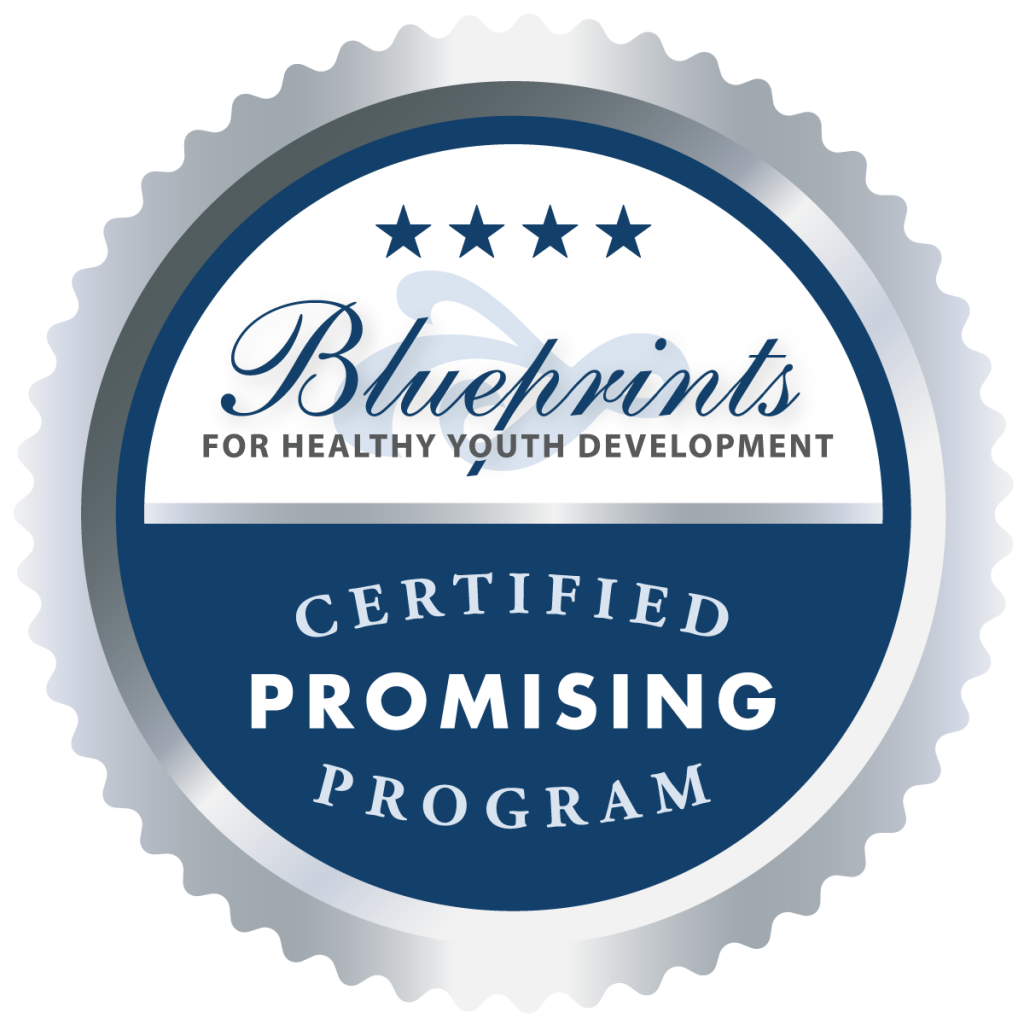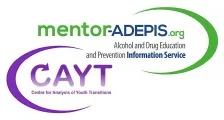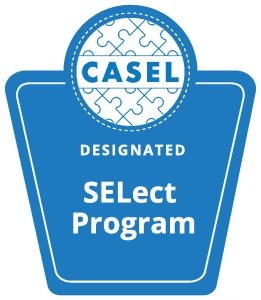
Research
The Incredible Years® evidence-based early intervention programs are for parents, teachers, and children and are designed to improve children's social and emotional skills, reduce behavior problems, and promote positive relationships. There is a considerable body of research that demonstrates the effectiveness of Incredible Years.
Key Takeaways
Improved Social Skills
Incredible Years® has been shown to improve children's social skills. Studies published in the Journal of Child Psychology and Psychiatry found that children with early-onset behavioral problems who participated in Incredible Years had significantly better social skills than those who did not.
Reduced Behavior Problems
Incredible Years has also been found to reduce behavior problems in children. Studies published in the Journal of Abnormal Child Psychology found that children who participated in Incredible Years had significantly fewer behavior problems than those who did not.
Positive Impact on Parenting
Incredible Years has been shown to have a positive impact on parenting practices. Studies published in the Journal of Consulting and Clinical Psychology found that parents who participated in Incredible Years had improved parenting practices, including increased positive interactions with their children.
Long-term Effects
The effects of Incredible Years have been found to be long-lasting. A study published in the Journal of Clinical Child and Adolescent Psychology found that the positive effects of Incredible Years were still evident three years after the program ended.
Cost-effective
Incredible Years has been found to be a cost-effective evidence-based SEL program.
Studies show that the program is associated with reduced healthcare costs and fewer school-based interventions, resulting in cost savings for both families and society.

Incredible Years® is listed as a validated, evidence-based program by the following organizations:






Validation
Child and Parent Services (CAPS) in Manchester selected as model of best practice by the National Institute of Health and Care (NICE)
NICE selected the Child and Parent (early intervention) Services program in Manchester as a model of best practice for both early years and conduct disorder guidance. The CAPS program utilizes Incredible Years® programs as a part of their service. Read more here.
Canadian Best Practices Initiative (CBPI) Unit at Public Health Agency of Canada
CBPI selected The Incredible Years® Programs as a “Best Practice.” CBPI’s intervention section assesses community and population-based interventions according to a set of rigorous and well-tested criteria. Learn more about the CBPI evaluation of the Incredible Years here. Click the button (English or French) below to be taken to the CBPI website for more information!
Collaborative for Academic, Social, and Emotional Learning (CASEL)
Incredible Years® is listed as one of CASEL’s SELect Programs, effective social and emotional learning programs for Preschools and Elementary Schools. CASEL evaluated the Incredible Years Teacher Classroom Management Program plus Classroom Dina Dinosaur School. The CASEL evaluation found significant child and teacher outcomes in reducing child behavior problems, improving child social behaviors, and improving teaching practices. Learn more about CASEL’s evaluation of IY Teacher Classroom Management here.
See more information on CASEL SELect Programs here.
The Early Intervention Foundation (EIF)
The Early Intervention Foundation (EIF) has assessed the Incredible Years Preschool Basic Parent Training Program and has been rated as Level 4+, having evidence from three rigorously conducted RCTs, with at least one study demonstrating long-term impact. These studies identified statistically significant positive impact on a number of child and parent outcomes. See more information here and read their report here.
The EIF evaluated the addition of the Incredible Years Advance Parent Training Program to the Preschool Basic program, and has rated it a Level 3+ which indicates evidence of efficacy. This means the program can be described as evidence-based: it has evidence from at least one rigorously conducted RCT or QED demonstrating a statistically significant positive impact on at least one child outcome. See more information here and read their report here.
The EIF has also evaluated the School Age Basic Parent Training Program, and has been rated as Level 3+. This means the program can be described as evidence-based: it has evidence from at least one rigorously conducted RCT or QED demonstrating a statistically significant positive impact on at least one child outcome. See more information here and read their report here.
The Incredible Years Child Training Program (Dina Dinosaur’s Social Skills and Problem Solving Curriculum) has been evaluated by the EIF and has been rated as Level 3+. This means the program can be described as evidence-based: it has evidence from at least one rigorously conducted RCT or QED demonstrating a statistically significant positive impact on at least one child outcome. See more information here and read their report here.
The Incredible Years Teacher Classroom Management program has also been assessed and rated 3+ by the EIF. This means the program can be described as evidence-based: it has evidence from at least one rigorously conducted RCT or QED demonstrating a statistically significant positive impact on at least one child outcome. See more information here and read their report here.
Beyond Blue / Be You Programs
In Australia, the Be You team at Beyond Blue, a program launched and funded by the Australian Government Department of Health under the National Support for Child and Youth Mental Health Program, has included the Incredible Years in its directory of programs it has evaluated for evidence of effectiveness. Learn more about the Be You team’s assessment of the Incredible Years here.
The Dutch Youth Institute (Nederlands Jeugdinstituut)
In the Netherlands, the Nederlands Jeugdinstituut assesses psychological interventions on the extent to which they are effective. This requires a careful description of the intervention including the aim, target population, theoretical background, approach, materials, training, and results of studies of effectiveness. There are four levels of evidence: theoretically well founded, first indications for effectiveness, good indications for effectiveness, strong indications for effectiveness. In 2012 Incredible Years was recognized as evidence-based intervention with the highest level of evidence. Based on four studies of effectiveness, Incredible Years was in 2019 again rated as having strong indications for effectiveness. In addition, the first meta-analysis of Incredible Years studies was conducted in the Netherlands. See more information here.
The Centre for Analysis of Youth Transitions (CAYT) 2017
The Centre for Analysis of Youth Transitions (CAYT) has evaluated the Incredible Years Parenting programs for parents of children ages 0-12. They have rated our programs as “Excellent,” finding that the programs have an excellent standard of evidence, and very high impact in all intended outcomes in terms of reach and significance. Read their report here.
The CAYT has also evaluated the Incredible Years Child Training Program (Dina Dinosaur’s Social Skills and Problem Solving Curriculum) and has rated the program as “Excellent.” Read their report here.
The Incredible Years Teacher Classroom Management program has also been evaluated by the CAYT, and has also been rated as “Excellent.” Read their report here.
California Evidence-Based Clearinghouse for Child Welfare
The California Evidence-Based Clearinghouse for Child Welfare is funded by the California Department of Social Services’ (CDSS’) Office of Child Abuse Prevention and is one of their targeted efforts to improve the lives of children and families served within child welfare system. They find Incredible Years programs “Well-Supported” with the strongest research evidence. Read more here.
Office of Juvenile Justice & Delinquency Program (OJJDP)
The Incredible Years parent, child and teacher programs were selected for dissemination by the United States Office of Juvenile Justice and Delinquency Prevention (OJJDP) as an early violence prevention program. OJJDP’s Family Strengthening Project designated the Incredible Years training series as an exemplary best practices program. Read more here.
National Institute of Justice Crime Solutions (2011)
The Office of Justice Programs at the National Institute of Justice evaluated Incredible Years Parent, Child, and Teacher Programs, and found the programs to be Effective. Read more here.
North Carolina Smart Solutions
Smart Solutions is a catalog of effective programs, interventions, and strategies that support children prenatal-through-five, their teachers, caregivers, and communities. The catalog highlights opportunities for early childhood investment. These options are part of a high quality, comprehensive, accountable early childhood system and promote transparency and consistency in planning and funding across the state.
Read their evaluation of the Preschool Basic Parenting program here, and their evaluation of the Teacher Classroom Management Program here.
Incredible Years® on United Nations Office on Drugs and Crime
The Incredible Years Program is featured on the United Nations Office on Drugs and Crime (UNODC). See more information here and here.
US Department of Education What Works Clearinghouse (WWC)
The What Works Clearinghouse evaluated the effect of The Incredible Years for children identified with or at risk for an emotional disturbance. The Incredible Years was found to have potentially positive effects on external behavior and potentially positive effects on social outcomes for children classified as having an emotional disturbance. Learn more about their evaluation here. Read the report here.
SAMHSA’s Science and Service Awards: Mental Health Promotion
Science and Service Awards is a national program to recognize community-based organizations and coalitions for exemplary implementation of evidence-based services.
The Incredible Years received the Model Program award from the Center for Substance Abuse Prevention in Washington D.C. on May 17th, 2001.
St. Vincent Family Centers
Awarded the Substance Abuse and Mental Health Services Administration (SAMSHA) 2008 Science and Service Award for Mental Health Promotion. St. Vincent Family Centers was recognized for its implementation of the evidence based, Incredible Years Program.
Invest in Kids Receives SAMHSA Award, 2011
Invest in Kids, in Denver, CO, received SAMHSA’s Science to Service Award for their work disseminating Incredible Years programs throughout the state. Way to go!
Invest in Kids (IIK) is a non-profit agency whose mission is to improve the health and wellbeing of vulnerable children and families throughout Colorado. Working in partnership with local communities, IIK identifies, introduces, implements and ensures the success of research-based, proven programs.
Invest in Kids identified The Incredible Years program in 2002 after an intensive international search for a program with significant and sustained evidence that would benefit children, their families and their teachers. The Incredible Years program was implemented statewide, in over 128 sites, serving over 6,507 children and 416 parents. Invest in Kids (IIK) is the sole source of Incredible Years training in the state and supports sites in implementing the program through intensive technical assistance and evaluation.
Morrison Child and Family Services Receives SAMHSA Award, 2007
Morrison Child and Family Services of Portland, Oregon, was awarded a 2007 SAMHSA Science and Service Award for their successful implementation of an evidenced-based practice, Incredible Years Parent and Child Groups.
Morrison Child and Family Services provides a comprehensive range of mental health, substance abuse, juvenile justice, and prevention services. Each year they touch the lives of more than 5,000 children and their families. Our programs include residential, day treatment, outpatient counseling, parent education, home and school-based programs, and foster care.
The Incredible Years program was initiated in 2001, and has delivered these key services in 9 child care centers, 3 Head Start systems, with over 60 family home providers in Portland, and across Morrison’s Portland metropolitan area outpatient clinics. Through delivery of the Incredible Years program collaborative, community partnerships have been developed and maintained. A comparison of pre/post behavior problems, protective factors, and parenting efficacy indicated statistically significant improvements for both parents and child care workers. In addition, parent satisfaction was very high.
Morrison was recognized in the category of “Mental Health Promotion.” 2007 is the first year that these national recognitions have been awarded and represent SAMHSA’s efforts to encourage the successful application of research at the practice level.”
The National Registry of Evidence-based Programs and Practices (NREPP)
Intervention Summary of Incredible Years Programs (updated 2007, 2013)
Blueprints for Healthy Youth Development Violence Prevention Model Program (2001)
The Incredible Years was selected as a model program in 2001 by the Center for the Study and Prevention of Violence, Institute of Behavioral Science, University of Colorado at Boulder.
Read Blueprints evaluation of IY Parent Programs here
Read Blueprints evaluation of IY Child Programs here
Read Blueprints evaluation of IY Teacher Program here
Blueprints Certified: Meeting the highest standards of evidence through independent review by the nation’s top scientists.
Amherst H. Wilder Foundation
The Foundation has combined direct service, research, and community development to address the needs of the most vulnerable people in Minnesota’s Ramsey County. Wilder introduced Incredible Years Program to the community in 2004. Implementation results between 2005 and 2008 demonstrate improvement for both parents and children participating in the Incredible Years Teacher Classroom, Dina Small Group Therapy, and the Preschool BASIC Parent Programs.
Mental Health Research Scientist Award (1992-2004)
In addition to program awards, Professor Webster-Stratton received the prestigious National Institute of Mental Health Research Scientist Award.
The Lela Rowland Award 2002
In May 2002 an Incredible Years certified mentor, Dr. Charles O. Tingley, Jr. who implemented the parent, teacher and child training programs at Northeast Occupational Exchange, received the Lela Rowland Prevention Award from the National Mental Health Association.
Chambless (1998)
The Incredible Years parenting programs are recommended by the American Psychological Association Task Force as meeting the stringent “Chambless criteria” for empirically supported mental health intervention for children with conduct problems.
The Lela Rowland Award 1997
The Incredible Years parenting program was selected as the winner of the best prevention programs of 1997 by the National Mental Health Association.
The Center for Substance Abuse Prevention (CSAP)
The Incredible Years parenting program was selected as exemplary and one of the most promising early interventions for preventing delinquency in the United States.
American Psychological Division 12 Task Force
The Incredible Years programs are recommended by American Psychological Division 12 Task Force as a well-established treatment for children with conduct problems.
Sources
Improved Social Skills:
- Webster-Stratton, C., Reid, M. J., & Hammond, M. (2001b). Social skills and problem solving training for children with early-onset conduct problems: Who benefits? The Journal of Child Psychology and Psychiatry, 42(7), 943-952. DOI: 10.1111/1469-7610.00790 https://pubmed.ncbi.nlm.nih.gov/11693589/
- Scott, S., Sylva, K., Doolan, M., Price, J., Jacobs, B., Crook, C., et al. (2009). Randomised controlled trial of parent groups for child antisocial behaviour targeting multiple risk factors: the SPOKES project. The Journal of Child Psychology and Psychiatry. DOI: 10.1111/j.1469-7610.2009.02127.x https://pubmed.ncbi.nlm.nih.gov/19732250/
Reduced Behavior Problems:
- Webster-Stratton, C. (1990a). Enhancing the effectiveness of self-administered videotape parent training for families with conduct-problem children. Journal of Abnormal Child Psychology, 18, 479-492.
- Posthumus. J.A., Raaijmakers, M.A.J., Maassen, G.H., van Engeland, H., and Matthys, W. 2012. Journal of Abnormal Child Psychology, 40(4), 487-500. DOI 10.1007/s10802-011-9580-9. https://pubmed.ncbi.nlm.nih.gov/22006348/
Positive Impact on Parenting:
- Webster-Stratton, C. (1998b). Preventing conduct problems in Head Start children: Strengthening parenting competencies. Journal of Consulting and Clinical Psychology, 66(5), 715-730.
- Linares, L. O., Montalto, D., MinMin, L., & S., V. (2006). A Promising Parent Intervention in Foster Care. Journal of Consulting and Clinical Psychology, 74(1), 32-41. DOI:10.1037/0022-006X.74.1.32 https://pubmed.ncbi.nlm.nih.gov/16551141/
- McGilloway, S., Ni Mhaille, G., Bywater, T., Leckey, Y., Kelly, P., Furlong, M., Comiskey, C. and Donnelly, M. A. (2012) Parenting Intervention for Childhood Behavioral Problems: A Randomised Controlled Trial in Disadvantaged Community-based Settings. Journal of Consulting and Clinical Psychology. DOI: 10.1037/a0026304 https://pubmed.ncbi.nlm.nih.gov/22148879/
Long-term Effects:
- Brotman LM, Gouley KK, Huang KY, Rosenfelt A, O'Neal C, Klein RG, Shrout P. Preventive intervention for preschoolers at high risk for antisocial behavior: long-term effects on child physical aggression and parenting practices. Journal of Clinical Child & Adolescent Psychology. 2008 Apr;37(2):386-96. doi: 10.1080/15374410801955813. PMID: 18470775. https://pubmed.ncbi.nlm.nih.gov/18470775/
Cost-effective:
- Foster, E. M., & Jones, D. (2005). The high costs of aggression: Public expenditures resulting from conduct disorder. American Journal of Public Health, 95(10), 1767-1772.

For more information and studies on Incredible Years program outcomes, view more research by visiting our library.